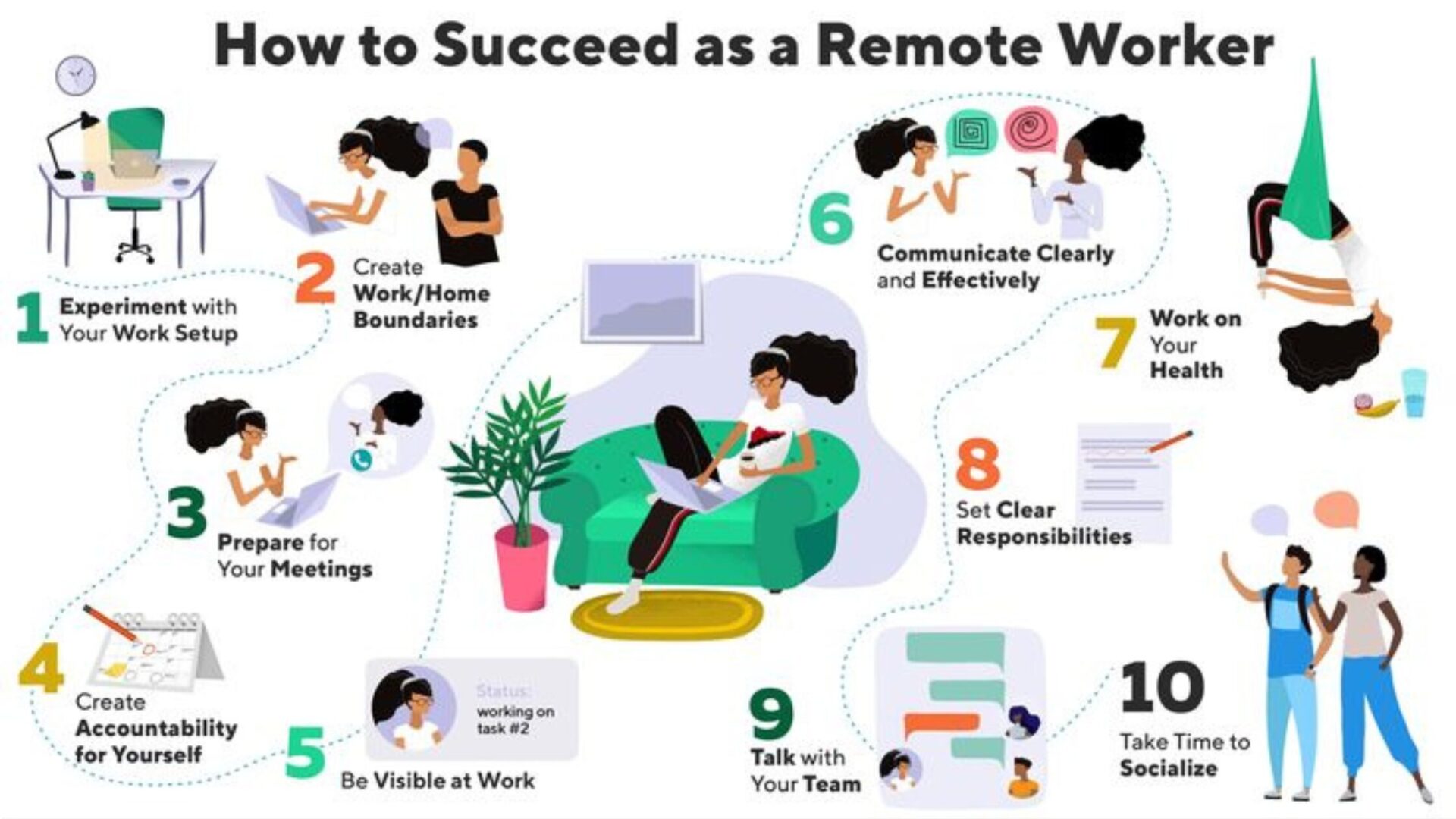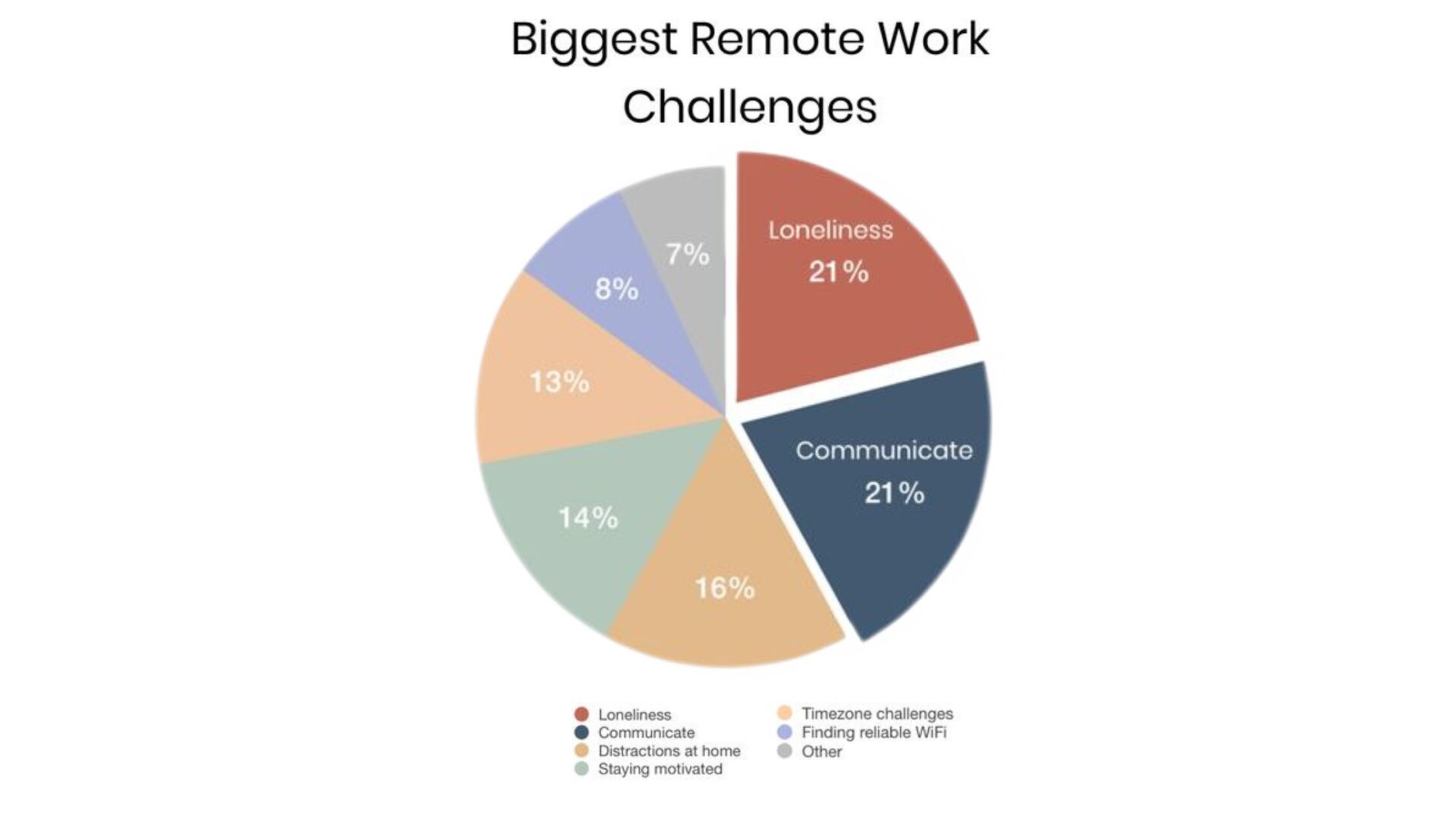The landscape of work has undergone a dramatic transformation in recent years, with remote work emerging as a prominent trend. This shift has been further accelerated by the global COVID-19 pandemic, pushing countless organizations to embrace remote work arrangements. As a result, many professionals are now considering how to become remote workers themselves.
Whether you’re looking to transition your current role to a remote position or seeking new opportunities in the world of remote work, this comprehensive guide will walk you through everything you need to know about becoming a successful remote worker.
Before diving into the specifics of how to become a remote worker, it’s essential to understand the reasons why this career path has become so appealing. Remote work offers numerous benefits that can significantly improve both your professional and personal life.
One of the most significant advantages of remote work is the flexibility it provides. Remote workers often have more control over their schedules, allowing them to balance work commitments with personal responsibilities more effectively. This flexibility can lead to improved work-life balance, reduced stress, and increased job satisfaction.
According to a survey conducted by FlexJobs in 2020, 51% of respondents reported that their work-life balance had improved since transitioning to remote work. This statistic underscores the positive impact that remote work can have on overall quality of life.
Remote work can result in substantial cost savings for both employees and employers. By eliminating the daily commute, remote workers can save money on transportation costs, work attire, and meals. These savings can add up quickly, potentially amounting to thousands of dollars per year.
A study by Global Workplace Analytics found that remote workers can save between $2,000 and $7,000 annually on costs related to commuting, food, and clothing. This financial benefit can provide remote workers with more disposable income or increased savings opportunities.
Contrary to some misconceptions, remote work can lead to increased productivity. Without the distractions of a traditional office environment, many remote workers find they can focus better on their tasks and accomplish more in less time.
A Stanford University study revealed that remote workers were 13% more productive than their office-based counterparts. This productivity boost can benefit both employees and employers, leading to improved job performance and potentially faster career advancement.
For those concerned about their carbon footprint, remote work offers an eco-friendly alternative to traditional office-based roles. By eliminating daily commutes and reducing the need for large office spaces, remote work can significantly decrease an individual’s environmental impact.
A report by Global Workplace Analytics estimated that if those with remote-compatible jobs worked from home half the time, it could reduce greenhouse gas emissions by 54 million tons annually – equivalent to taking 10 million cars off the road for a year.

Becoming a successful remote worker requires more than just the ability to perform your job duties from home. Certain skills are particularly crucial for thriving in a remote work environment. Developing and honing these skills can significantly increase your chances of success as a remote worker.
Remote work often comes with increased autonomy, which means you’ll need to be self-motivated and disciplined to stay on track without constant supervision. Setting clear goals, creating a structured schedule, and holding yourself accountable are essential for maintaining productivity in a remote setting.
Clear and efficient communication becomes even more critical when working remotely. Without the benefit of face-to-face interactions, remote workers must excel at written communication and be proactive in reaching out to colleagues and supervisors.
Strong time management skills are crucial for remote workers. Without the structure of a traditional office environment, you’ll need to effectively prioritize tasks, manage your workload, and meet deadlines independently.
Remote work often requires quick thinking and adaptability, especially when dealing with technical issues or unexpected challenges. Developing strong problem-solving skills and the ability to work independently will serve you well in a remote role.
Proficiency with various digital tools and technologies is essential for remote workers. Familiarize yourself with common collaboration platforms, project management tools, and video conferencing software to ensure you can seamlessly integrate into a remote team.
Now that you understand the benefits and necessary skills for remote work, let’s explore how to find remote work opportunities.
Numerous job boards and platforms specialize in remote work opportunities. Websites like FlexJobs, and Remote. co, and We Work Remotely are excellent resources for finding remote positions across various industries.
When using these platforms, be sure to tailor your search criteria to match your skills and experience level. Many of these sites allow you to set up job alerts, ensuring you’re notified when relevant positions become available.
Networking remains a powerful tool for finding job opportunities, even in the remote work landscape. Leverage professional networking platforms like LinkedIn to connect with industry professionals and join remote work-focused groups.
Share your interest in remote work with your network and engage in relevant discussions. Many remote opportunities are filled through referrals, so maintaining an active professional network can significantly increase your chances of landing a remote position.
Freelancing or contract work can serve as an excellent entry point into the world of remote work. Platforms like Upwork, Fiverr, and Freelancer.com offer opportunities to showcase your skills and build a remote work portfolio.
Starting with freelance projects can help you gain experience in remote work dynamics and potentially lead to long-term remote opportunities.
If you’re currently employed in a traditional office-based role, consider approaching your employer about the possibility of transitioning to a remote position. Prepare a well-thought-out proposal outlining how you can effectively perform your duties remotely and the potential benefits for both you and the company.
The COVID-19 pandemic has made many employers more open to remote work arrangements, so this could be an opportune time to explore this option with your current organization.
To increase your chances of landing a remote position, it’s crucial to tailor your resume and online presence to highlight your remote work capabilities.
When crafting your resume for remote positions, emphasize skills that are particularly valuable in a remote work environment. These may include:
- Experience with remote collaboration tools
- Strong written and verbal communication skills
- Self-motivation and ability to work independently
- Time management and organizational skills
- Adaptability and problem-solving abilities
If you have any previous experience working remotely, even if it was only occasionally or during the COVID-19 pandemic, be sure to highlight this on your resume. This demonstrates to potential employers that you’re already familiar with remote work dynamics.
Ensure your LinkedIn profile is up-to-date and optimized for remote work opportunities. Use relevant keywords in your profile summary and job descriptions, and consider joining LinkedIn groups focused on remote work to expand your network.
For many remote positions, especially in creative or technical fields, having an online portfolio can be a significant advantage. Showcase your best work and include any remote projects you’ve completed to demonstrate your capabilities as a remote worker.
Once you’ve secured a remote position, it’s essential to set up a productive and comfortable work environment at home.
Create a designated workspace in your home that’s separate from your living areas. This helps establish boundaries between work and personal life and can improve focus and productivity.
Investing in ergonomic furniture, such as a comfortable chair and an adjustable desk, can help prevent discomfort and potential health issues associated with prolonged sitting.
A stable and fast internet connection is crucial for remote work. Consider upgrading your internet plan if necessary, and have a backup option (such as a mobile hotspot) in case of outages.
Ensure you have all the necessary technology to perform your job effectively. This may include:
- A reliable computer or laptop
- Webcam and microphone for video conferencing
- Noise-cancelling headphones
- Any specific software required for your role
Creating a consistent routine can help you maintain a healthy work-life balance when working remotely. Set clear working hours, take regular breaks, and establish boundaries with family members or roommates to minimize distractions during work hours.
Maintaining productivity and staying connected with your team are crucial aspects of successful remote work.
Familiarize yourself with the communication and collaboration tools used by your organization. These may include:
- Video conferencing platforms like Zoom or Microsoft Teams
- Project management tools such as Trello or Asana
- Instant messaging apps like Slack or Microsoft Teams
- File sharing and collaboration platforms like Google Drive or Dropbox
Regularly communicate with your team using these tools to stay connected and aligned on projects and goals.
Schedule regular check-ins with your supervisor and team members to discuss progress, address any challenges, and maintain a sense of connection with your colleagues.
Use time management techniques like the Pomodoro Technique or time-blocking to maintain focus and productivity throughout your workday.
Remote work can sometimes lead to feelings of isolation or burnout. Make sure to prioritize your physical and mental health by:
- Taking regular breaks and stretching throughout the day
- Maintaining a consistent sleep schedule
- Engaging in regular exercise or physical activity
- Staying connected with friends and family outside of work hours
The remote work landscape is constantly evolving, so it’s important to continuously develop your skills. Stay up-to-date with industry trends, take online courses to enhance your skillset, and seek out opportunities for professional development within your organization.

While remote work offers numerous benefits, it also comes with its own set of challenges. Being aware of these potential hurdles and having strategies to overcome them can help you thrive in your remote role.
Remote work can sometimes lead to feelings of isolation. Combat this by:
- Scheduling virtual coffee breaks or social calls with colleagues
- Joining online communities or forums related to your industry
- Considering working from a co-working space occasionally (if feasible and safe)
Without the physical separation of office and home, it can be challenging to maintain a healthy work-life balance. Strategies to address this include:
- Setting strict work hours and sticking to them
- Creating a shutdown ritual to signal the end of your workday
- Avoiding checking work emails or messages outside of work hours
Maintaining motivation and focus can be challenging when working from home. Try these strategies:
- Break large tasks into smaller, manageable chunks
- Use productivity apps or browser extensions to block distracting websites during work hours
- Reward yourself for completing tasks or meeting goals
Home environments can be full of distractions. Minimize these by:
- Communicating your work schedule to family members or roommates
- Using noise-cancelling headphones to block out background noise
- Creating a clutter-free, organized workspace
Becoming a remote worker can offer numerous benefits, from increased flexibility and improved work-life balance to cost savings and increased productivity. By developing essential remote work skills, effectively searching for opportunities, creating a productive home office environment, and implementing strategies to stay connected and overcome common challenges, you can set yourself up for success in the world of remote work.
As the global workforce continues to evolve, remote work is likely to become increasingly prevalent. By embracing this shift and equipping yourself with the necessary tools and skills, you can position yourself for a rewarding and successful remote career. Whether you’re looking to transition your current role to a remote position or seeking new opportunities in the remote work landscape, the journey to becoming a remote worker can lead to a more flexible, balanced, and fulfilling professional life.




